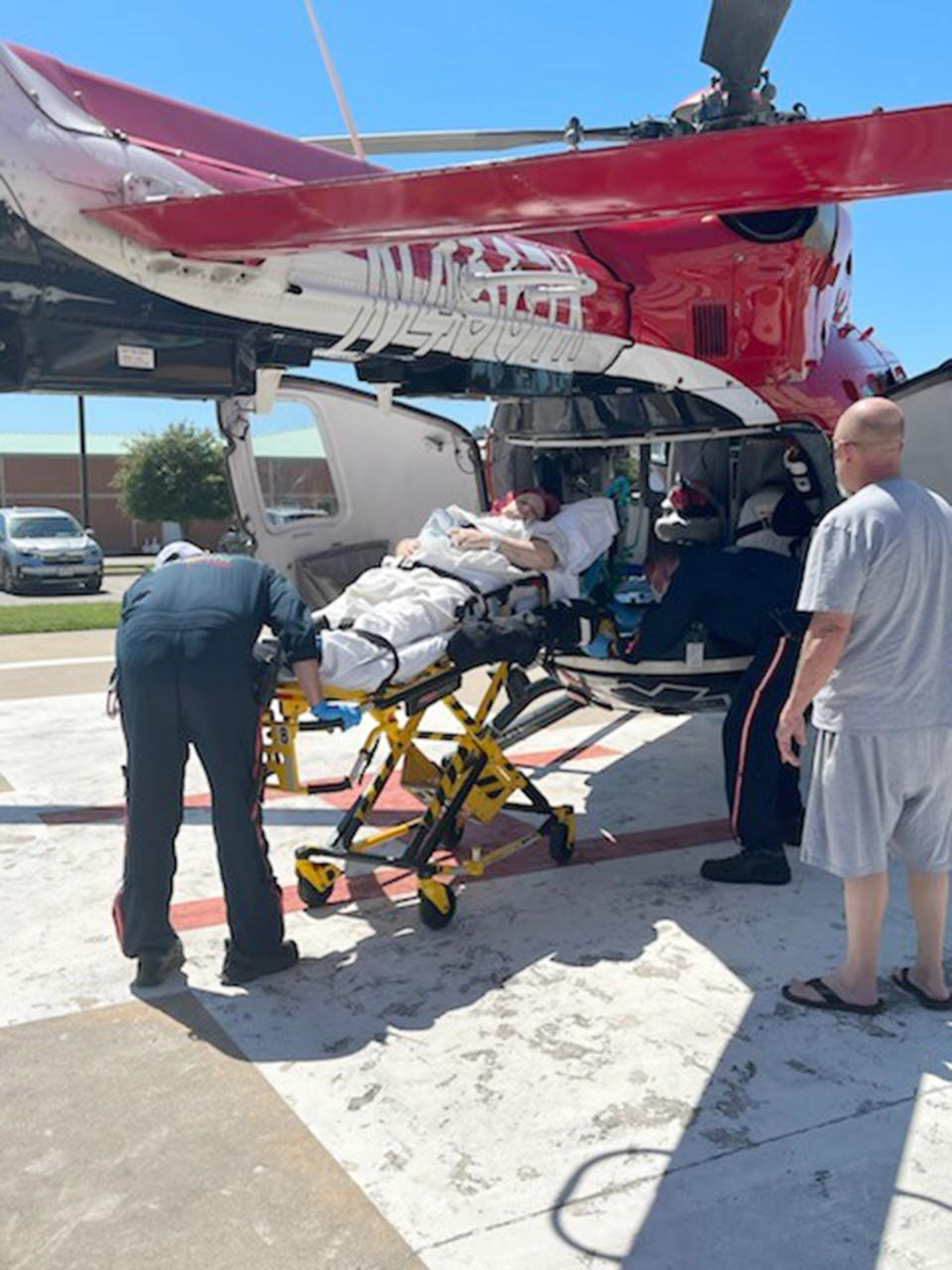Nurse, 52, went to the hospital after a fall. She was diagnosed with cancer
When Donna Ford, 52, took a tumble at her home in Livingston, Texas a year ago, she shrugged it off.
Her left leg was amputated previously so "falling is not uncommon for me," Ford, a nurse, tells TODAY.com. Although she fell on her bottom, she felt a "charge" all the way up in her head. "I didn't hit anything, but I felt it," she says.
Ford went to work that night and developed a headache, "but that's not unusual either," she says.
However, by the time she got back home from her late shift the next morning, Ford says her vision was "off" and she heard a "rushing sound" in one of her ears. At that point, she asked her husband to take her to a standalone emergency room, which transferred her to a nearby hospital.
There, Ford was diagnosed with a subdural hematoma, which occurs when blood pools in the skull and puts pressure on the brain, the Mayo Clinic explains. Ford received a brain scan and was then discharged, she says, but her condition soon became more serious.
"I went home and I slept that night," she recalls. "But when I woke up, I started puking. And as a nurse, I knew that that was not a good thing."
Back at the standalone emergency room, another brain scan confirmed that Ford's brain bleed had gotten "significantly worse," she says. So the staff decided to fly her to Memorial Hermann Memorial City Medical Center in Houston, where she received an even more surprising diagnosis: leukemia.

Sometimes, unusual bleeding can be a sign of cancer
Ford was diagnosed with acute promyelocytic leukemia (APL), a specific type of leukemia that affects the bone marrow and is caused by two specific genetic mutations, according to Medline Plus. Like other forms of leukemia, APL affects the blood cells and platelets, making it more difficult for the body to properly form blood clots.
Most people who have APL have relatively mild symptoms, Dr. Adan Rios, an oncologist with UTHealth Houston and Memorial Hermann who treated Ford, tells TODAY.com.
Those signs might include bruising easily, heavy periods, nosebleeds and small red spots under the skin called petechiae, Medline Plus says. Other APL symptoms can be more vague, such as fatigue, joint pain and loss of appetite.
But about one in 10 patients "will have serious bleeding, and it's often bleeding in the brain," Rios says. People with this type of cancer have issues with excessive bleeding, which can make it challenging to treat the complications like this that require surgery, he explains.

 Yahoo Autos
Yahoo Autos 